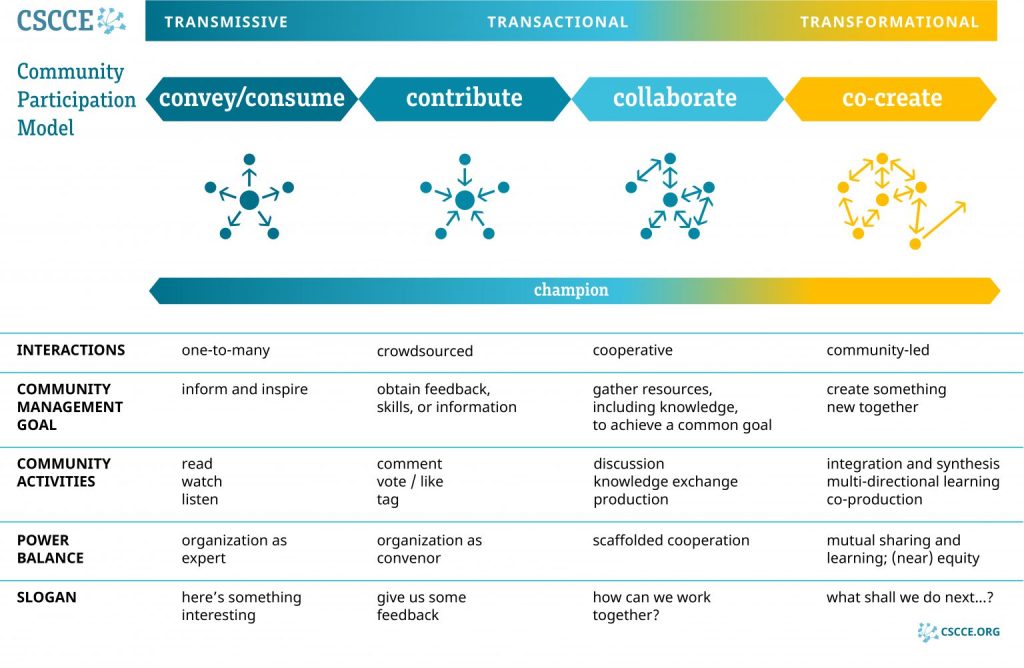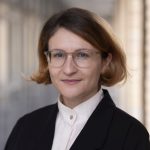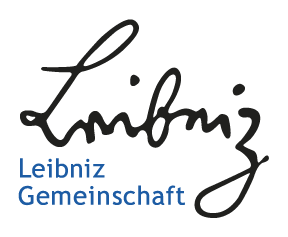Sustainable community building with the Wikibase Stakeholder Group – presentation at FOSDEM 2022
Introduction
FOSDEM is a free and non-commercial event promoting the widespread use of free and open source software. It is organised “by the community for the community” [1]. The conference format features Developer rooms (or devrooms) – a form of thematic tracks around which developers can meet, network and exchange new directions in their work. One of these is dedicated to Open Research Tools and Technologies, addressing FLOSS developers “in a broad community concerned with research production and curation: scientists, engineers, journalists, archivists, curators, activists” [2]. This devroom is well suited to much of the research and software development carried out at TIB, and the Open Science Lab (OSL) in particular, with our focus on open tools and open data.
This year, we joined the discussion at FOSDEM by presenting ongoing efforts towards community building around open source tools for knowledge management. Together with Dragan Espenschied, Preservation Director at Rhizome, we presented the case study of the Wikibase Stakeholders Group [3]. This a group facilitating collaboration across various institutional and individual partners in order to ensure the continued development and long-term sustainability of Wikibase, a suite of tools for data management within a linked open data environment. TIB’s OSL team are active members of the Group and participate in it in the context of the NFDI4Culture project [4]. At NFDI4Culture, Wikibase is seen as a key piece in the open infrastructure of the 4Culture Knowledge Graph [5]. Dedicated to FAIR data and open software, the consortium includes a wide range of GLAM participants that can benefit from an improved and sustainably maintained research data management environment. With a dedicated Wikibase Community Manager (OSL’s Lozana Rossenova) and participation in the Wikibase Stakeholder Group (via TIB’s OSL and FIZ Karlsruhe colleagues), NFDI4Culture consortium is well positioned to be not only a user of FOSS tools, but also an active developer and maintainer operating within an entirely research-led and non-profit context.
Besides the focus on the maintenance of a particular tool, the Wikibase Stakeholder Group and its members are making significant contributions to the space of FOSS development through testing new approaches to governance, decision-making and resource-management within open source communities. The presentation at FOSDEM shared current findings and ongoing challenges. We structured these around a specific set of questions put together by Greg Bloom in The Principles of Governing Open Source Commons, a living document about the design of sustainable open source communities. These are questions meant to be asked frequently (QAF) within OSS communities and are inspired by Fabriders’ QAF and the Governing Knowledge Commons’ research framework.
The questions served as a basis to present the group at the devroom, starting with the questions focused on mission, history and membership. But by answering these questions for the sake of the presentation – more than a year after the group’s formal establishment, and several years after the community members first came together as a group – we also saw the value indeed in asking, and answering, these questions frequently.
Questions to ask frequently (QAF)
One of the initial questions – What are the key roles in this community? – prompted us to think beyond the more clearly defined roles such as for example who maintains shared online resources like the group website, mailing list and social media, etc. In principle, we aim to operate based on a consensus-based model, as defined by the Community Rule Toolkit [6]. The definition of a do-ocracy within this model seems clear and straightforward in terms of roles and who is responsible for what: “People who make proposals that the group agrees on are responsible for its implementation, delegating as necessary and as participants are willing to help” [6]. However, in practice one of the key challenges that remains for our group is how to better decentralise the do-ocracy model, so that more members can feel confident and empowered enough to make proposals in the first place, and then participate more actively in implementing them.
Re-evaluating our governance model, led us to consult existing scholarly resources such as the ones established by the Center for Scientific Collaboration and Community Engagement. In particular, we found their model for Community Participation a very helpful tool to articulate goals for how community roles are distributed. After a year of well-coordinated monthly community meetings, workshops and conference events, we are at the point where collaboration is effective and discussions lead to knowledge exchange and long-term planning. However, a few institutions are still perceived as ‚leaders‘ within the Group. Our goal for 2022 is to move towards the co-creation model, that is more fully decentralised and learning and co-production is multi-directional.

From collaboration to co-creation
In order to move towards the co-creation participation mode, we have had to answer several further questions regarding the management and stewardship of resources within our Group. The What?, Why?, How? set of questions lead us to more questions regarding required skills and the associated challenges.
- What: producing and stewarding software resources, which focus on extensions to Wikibase instead of contributing to Wikibase core.
- Why: value to institutions who want to expand use-cases of Wikibase outside the context of Wikimedia.
- How: pooling financial and human resources, so that the group can 1) define and consolidate desirable features and documentation for Wikibase, 2) produce or commission these projects, and 3) maintain these projects.
- Skills needed: development skills, project management stills, technical writing skills, UX design skills, and subject domain knowledge that can guide development needs within certain use-cases.
- Challenges: steep learning curve within Wikimedia development environments and building the necessary developer capacity to meet the needs of our community.
To address the need for diverse skills and the challenges of onboarding new members in the community, we’ve embarked on a program to recruit a range of new members to the Group coming from different disciplinary backgrounds, but all committed to the use and continuous development of Wikibase. Membership is only conferred to individuals who can commit the time needed to invest in the community-building effort. Active participation in monthly meetings and asynchronous discussions via our online communication channels are requirements to create an environment where conversations move forward and each discussion leads both to effective knowledge exchange, as well as concrete outcomes for our development roadmap. Thus we aim to avoid the pitfall of continuously engaging new members into the community with low level of commitment and starting conversations about specific topics from scratch every time.
Furthermore, to address the skills shortage when it comes to developers with in-depth knowledge of the Wikibase codebase, we are working together with Wikimedia Germany to organise a short series of 2-day workshop events led by current Wikidata and Wikibase developers and dedicated specifically to developer onboarding through concrete practical work such as setting up an environment ready for Wikibase extension development, as well as building prototypes of example extensions. Additional documentation will be produced around these events and released to the wider community.
Our presentation at FOSDEM ended with sharing some practical tips around our online workspaces and how we keep up discussions online asynchronously – given the widely distributed demographic of our Group. A key tool in our workbook is Loomio, an open source decision making application that combines features from chat-based apps, but retains discussions in a clearly visible and well-documented manner, so that they can easily be reviewed and searched through – resulting in something closer to a knowledge base, than a traditional chat interface, which is hard to navigate and sort through older discussions. Loomio allows us to run polls inside discussion threads, and reach decisions faster. We can also create sub-groups dedicated to discussing specific issues, e.g. Data Import, Federation, Infrastructure, and more, helping us organise individual threads into focus group discussions involving only group members whose skills match the needs within the particular discussion space.
We ended the presentation with a list of resources relevant to community building efforts within open source software communities that are also available at the end of this blog post.
Community-led efforts at the policy level
What was interesting about our participation at FOSDEM this year, was how the topic of our talk related to the rest of the sessions within the Open Research Tools devroom. Of particular relevance were sessions focused on building sustainable software in academic and digital humanities contexts (panel link), as well the sessions on policies (panel link). Within the policies panel the main focus was the current state of open source development in the French research ecosystem. Relevant documents [8, 9] shared during this panel open possibilities for productive comparisons with the German ecosystem and ongoing efforts such as NFDI4Culture, and NFDI more broadly. An interesting emphasis within the session was the focus on developing sustainable business models that served open source projects without removing the open licensing that should remain intact, even once projects move from an academic environment into e.g. a startup context. There was recognition that although French national policies seem to encourage this transition from academia to business, there is still a lack of deeper understanding how licensing can remain open while sustaining a viable business model.
This is where a community-led effort such as the Wikibase Stakeholder Group offers an alternative model, driven by research oriented funding vs profit-generating enterprise, while still providing a stable framework for development work to experts who have the skills required to develop and maintain the software resources. There remains much work to be done before the Group reaches the co-creation participation stage, but we hope to continue our exchange with, and learning from, other open source initiatives and community building efforts in order to indeed be a stable alternative to closed source, commercial enterprises. TIB’s own internal knowledge sharing initiative for community building led by Julian Franken from the ConfIDent project has been a great source of information and guidance, and we will work closely with community managers within TIB who have experience in the open science and open source movements to exchange insights and findings in the future.
Endnotes:
[1] Source: https://fosdem.org/2022/about/ (Accessed: 10 Feb, 2022) [2] Source: https://fosdem.org/2022/schedule/track/open_research_tools_and_technologies/ (Accessed: 10 Feb, 2022) [3] Presentation slides available at: https://github.com/Wikibase-Stakeholder-Group/Wikibase-Stakeholder-Group.github.io/blob/main/documents/FOSDEM_Feb2022_SustainableCommunityBuildingWBSG.pdf; Video recording available at: https://fosdem.org/2022/schedule/event/open_research_wikibase/ (Accessed: 10 Feb, 2022) [4] See our previous blog post on this topic: /2021/11/05/tib-at-wikidatacon-part-2/ (Accessed: 10 Feb, 2022) [5] Blümel, I., Sohmen, L. and Sack, H. (2021). ‘Wikibase as RDM infrastructure within NFDI4Culture’, WikidataCon 2021 [online]. Available at: https://pretalx.com/wdcon21/talk/XXSPCR/ (Accessed: 10 Feb, 2022) [6] Available at: https://communityrule.info/create/?r=consensus (Accessed: 10 Feb, 2022) [7] Woodley, L. and Pratt, K. (2020).‘ The CSCCE Community Participation Model – A framework to describe member engagement and information flow in STEM communities‘. Zenodo [online]. DOI:10.5281/zenodo.3997802 (Accessed: 14 Feb, 2022) [8] Ministry of Higher Education, Research and Innovation. (2021). ‘Second French Plan for Open Science: Generalising open science in France 2021-2024’ [online]. Available at: https://www.ouvrirlascience.fr/second-national-plan-for-open-science/ (Accessed: 10 Feb, 2022) [9] Lamprecht, Anna-Lena et al. (2020). ‘Towards FAIR Principles for Research Software’, Data Science [online], 3(1), p37-59. DOI: 10.3233/DS-190026 (Accessed: 10 Feb, 2022)Resources for community building:
- The Digital Infrastructure Incubator at Code for Science & Society: event series and newsletter
- Center for Scientific Collaboration and Community Engagement (CSCCE) training modules and events
- GSCCE’s resource list related to community governance
- CommunityRule toolkit
- Greg Bloom’s Principles of Governing Open Source Commons
Dr. Lozana Rossenova ist Mitarbeiterin im Open Science Lab der TIB und arbeitet im Projekt NFDI4Culture in den Bereichen Datenanreicherung und Entwicklung von Wissensgraphen. // Dr Lozana Rossenova is currently based at the Open Science Lab at TIB, and works on the NFDI4Culture project, in the task areas for data enrichment and knowledge graph development.



0 Antworten auf “Sustainable community building with the Wikibase Stakeholder Group – presentation at FOSDEM 2022”